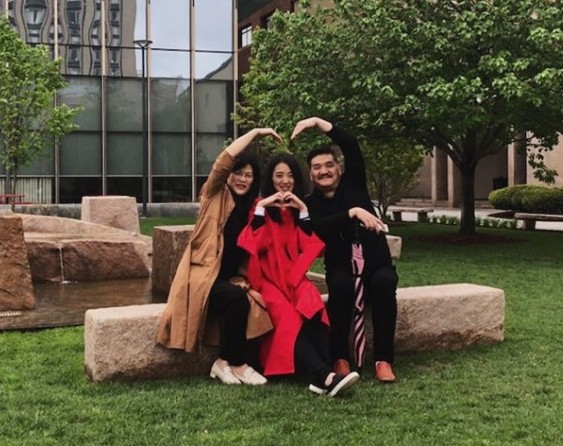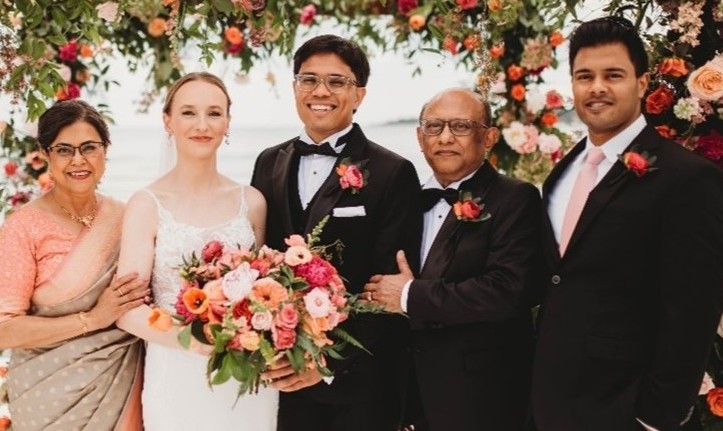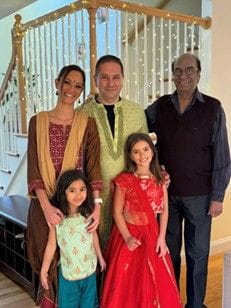The Asian American and Pacific Islander (AAPI) communities have long been integral to American society, enriching its cultural, economic, and social landscapes. Their invaluable contributions are just the beginning of what we can learn from their experiences. We interviewed individuals within our organization who are part of the AAPI community to delve deeper into their unique challenges and triumphs in education and care, the two major domains Bright Horizons® focuses on. What emerged were inspiring stories of resilience, determination, and success.
Education: a complex landscape
AAPI students often navigate high expectations and systemic challenges. Historically, their journey has been anything but straightforward, requiring them to overcome language barriers, bridge cultural gaps, and advocate for greater representation in curricula and leadership roles.
Social Media Manager Jane Wang’s story is an example. Despite obstacles, her dedication and grit shine through. “At 18, I was admitted to Boston University’s journalism program and faced the challenge of navigating a different language environment. While my classmates read books in two days, I took a week. They filmed interviews in an afternoon; I spent two weeks revising and practicing. Making friends during lunch breaks was easy for them, but I struggled to start conversations.
During my freshman year, my writing instructor often told me, “You can’t write like this.” I was repeatedly told I had made the wrong choice. However, the typical Asian value of perseverance, combined with the rebellion of an 18-year-old, drove me to succeed.
I sought help from tutors at the writing center and native-speaker classmates. I ensured each essay had at least three rounds of revisions before submission. I spent every day and night at writing centers and attended professors’ office hours twice a week, asking for guidance. Over time, I became a familiar face in my program and eventually earned the highest scores across sessions and programs.”


Caregiving – balancing tradition and norm
Similarly, caregiving within AAPI communities is deeply rooted in cultural values such as filial piety — obligation and respect that children have towards their parents and elders - and collective responsibility. AAPI individuals, often take on the role of primary caregivers for their elders, balancing this duty with their personal and professional lives. The clash between traditional caregiving practices and American norms can create unique pressures and challenges, highlighting the need for culturally sensitive support systems.
Content Marketing Director Aurore Joshi’s story traverses three countries, two generations, and one important value —– showing up for family, regardless of circumstances.
“I was born in France to a French mother and an Indian father. Although I spent most of my life in France before moving to the US, I was very close to my Indian family. The reassurance, love, and warmth I felt with them left a lasting impression on me. I always admired my dad's dedication to caring for his family, especially his mother and sister. When my mom fell ill in my early 20s, I was her primary caregiver. Even though my parents were separated, my dad was a wonderful support, ensuring my mom received the care that she needed. I cared for her just as he would have.
A few years later, my dad also became ill. I was living in the U.S with my two young daughters, trying to finally advance my career. He was alone in France. So, I brought him to live with us to take care of him. We didn’t think twice about it, but the last few years have been very challenging. Balancing motherhood (with two children under ten), a full-time career, and my dad’s health issues, all while navigating administrative and immigration processes has been very difficult. I aim to provide him with the care he deserves, from the comfort of our home, like he would get in India, but without the strong community, support system and round the clock care that he could get there.
However, looking back at the time when my mom passed away, I wouldn't have done it any other way. Even now, seeing my dad's gratitude makes it all worth it. I am proud of my French and Indian heritage, but the family values from my Indian upbringing is one of the things I cherish most. This is how I am making a real difference in this world”.Language: intersection of education and care
Language opens doors to new opportunities, bridges cultural gaps, and builds connections. Here’s how Kasturi Purkayastha, director of IT quality assurance, navigated adjusting to a new country while raising bilingual children.
“My husband and I are first-generation immigrants who came to the U.S. as students pursuing higher degrees. He arrived in the early 1980s to do his PhD, and I joined him a few years later to complete my second master’s degree. Being students helped us assimilate easily, and we didn't face significant challenges due to our ethnicity.
As we raised our children, we focused on helping them assimilate with the culture to avoid feeling alienated, while also balancing our heritage. They participated in various sports like football and skiing, along with other clubs and activities. At the same time, we enrolled them in language school on weekends to teach them our native language.
We wanted them to be bilingual so they could communicate freely with their grandparents and family back in India. We are proud to say that they are both fluently bilingual. My older son, who is a doctor in New York, often has patients who speak with him in Bengali.”



